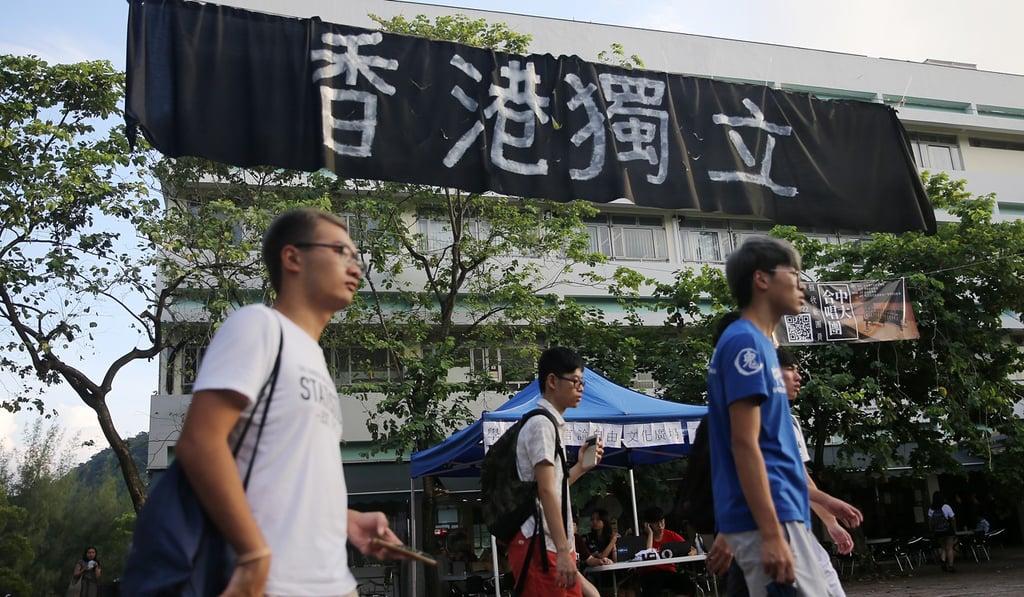Advertisement
It’s up to Carrie Lam to assuage Beijing’s fear over Hong Kong independence
Alice Wu says Hong Kong’s chief executive must succeed where her predecessor failed. She must convince central leaders not to overreact to the independence banners on university campuses, which are the work of a minority
Reading Time:3 minutes
Why you can trust SCMP

By now, we should be very used to our inability to focus on the issues of the day. The pro-independence banners that have appeared on several Hong Kong university campuses are a case in point. Suddenly, the pressing issues confronting society are all but forgotten as those agitators hijack our attention.
Of course, Hong Kong is not alone in giving in to the politics of distraction; societies elsewhere have the same challenge. We seem to be suffering from attention deficit disorder in almost every realm in our lives.
Whoever put up the banners has (or have) finely tuned political instincts. The effort of writing a few characters and hanging it up is nothing compared to, say, Chief Executive Carrie Lam Cheng Yuet-ngor putting together her 30-member task force on land supply. But in terms of political efficiency, a few strokes of a brush and tying a few knots managed to not only get ink on broadsheets, airtime on television and radio, but also to get a whole lot of people worked up; it wins, hands down.
Showdown at Chinese University campus over posters and politics
The issue has even been catapulted to the lofty realm of “academic freedom”, and is being used by a student union to threaten “escalating action” if its demands are not met. Blown out of all proportion, the banner row has derailed actual work attempting to tackle real problems.
Watch: Residents swelter in Hong Kong’s subdivided flats
I get it. It is far easier to be outraged by a banner or by the removal of such a banner than to be outraged by, say, children living in appalling conditions. Besides, a false sense of accomplishment can be momentarily rewarding, and shrill and sanctimonious politics is cheap.
With the ‘right’ kind of distraction, things can get real bad, real fast, when it comes to Beijing
For the government, it is this sort of political distraction, which seem unending, that will prove to be the most challenging to fight. These distractions demand an immediate response and rob the administration of the focus it needs to keep things on track. If the Occupy movement teaches any lesson, it is that with the “right” kind of distraction, things can get real bad, real fast, when it comes to Beijing.
Advertisement
In the run-up to Occupy, the previous administration in Hong Kong was so preoccupied with fighting fires that it completely failed to allay Beijing’s concerns. Since then, the Beijing-taunting politics of distraction has only become more frequent.
It may be a thankless job but it has to be done. Some in political circles suspect that our last chief executive stoked Beijing’s anger and pro-independence fears for his own benefit. Lam must use every channel available to her to assure Beijing that there is no need to overreact to an eyesore. She must convince those in charge of Hong Kong affairs that reacting to it would be counterproductive, and empowering to the few who are getting cheap thrills out of getting under Beijing’s skin.
Pan-democrats pay price of not saying no to Hong Kong independence

Seven ways Hong Kong Chief Executive Carrie Lam can please Beijing and the people
Advertisement
Select Voice
Select Speed
1.00x